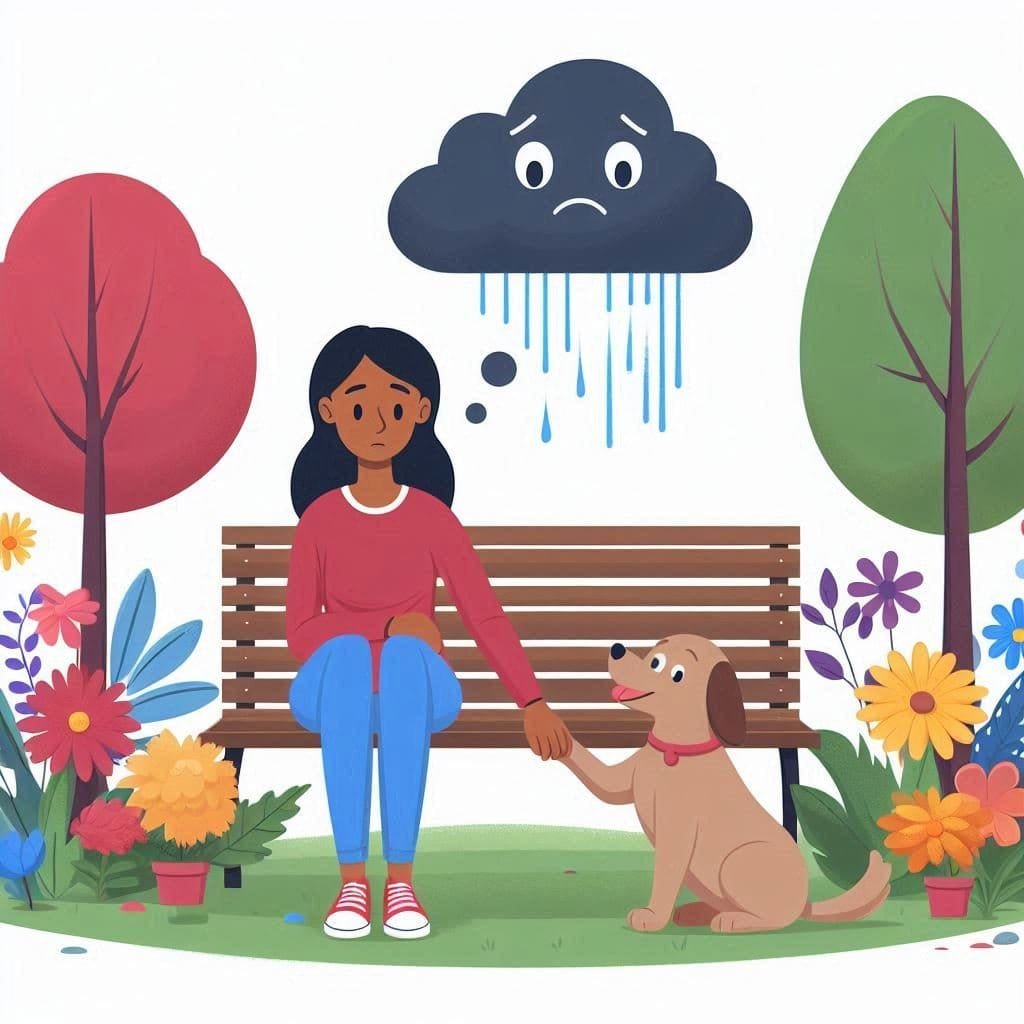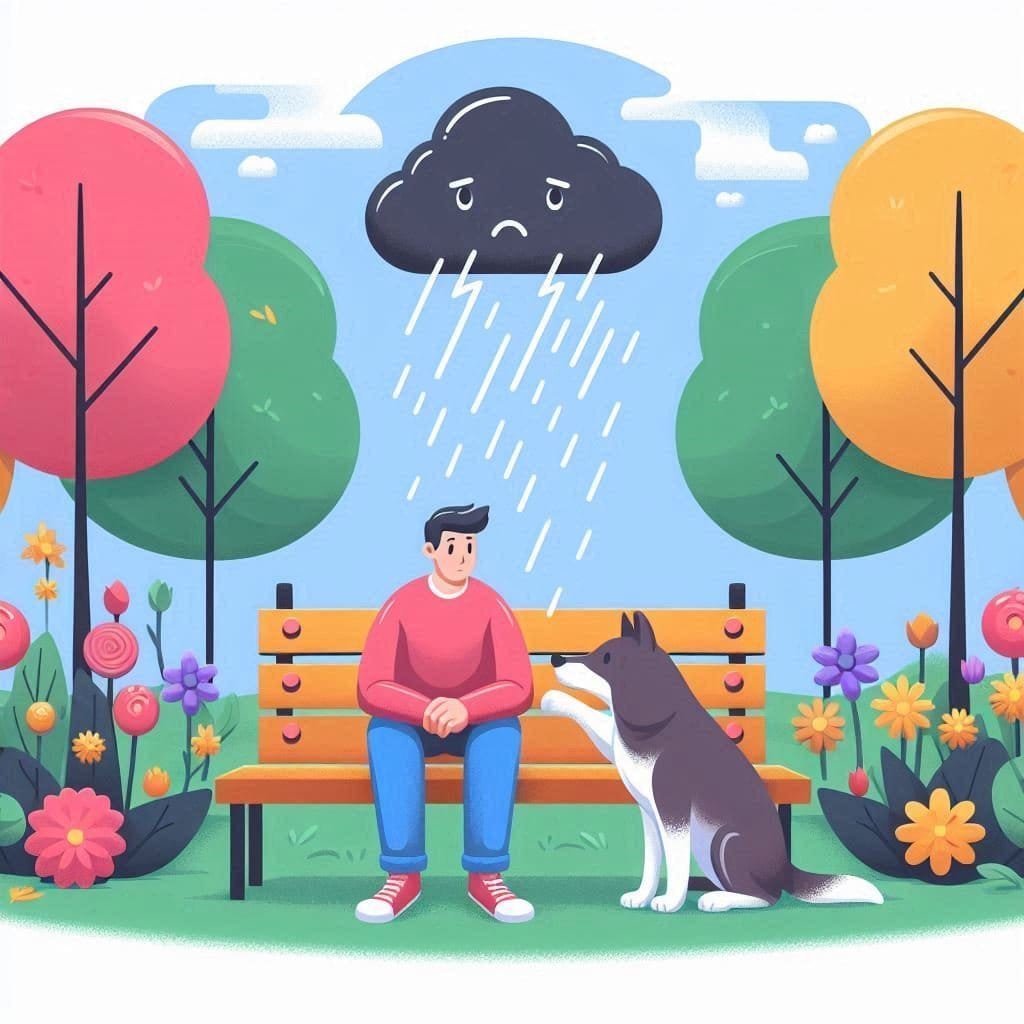Introduction to Depression
It is not just a case of feeling down or having a difficult time, though many people can relate to that quite easily. A grave psycho-emotional disturbance affects the millions of patients in every country in the world.
The purpose of this article is to answer the questions related to depression, such as the factors to take into consideration when evaluating the condition, the consequences of the disease, the available types of therapy, and prevention possibilities. Due to getting depression better, one may well endeavor to work towards building a more humane and stable world for the people who suffer from this serious disorder.

What is depression?
Depression is a psychopathology disorder where clients lose their interest in activities and spend most of their time in a state of hopelessness. One also has to remember that depression is in no way attributed to weakness or something that one can just’ snap out of.‘ Depression is an illness that impacts the way a person thinks, feels, and behaves and often includes hindrance of their everyday activities and work.
Reasons for Depression
To comprehend the causes sometimes can be rather difficult because the issue often has more than one cause. We should investigate the absolute most normal supporters of this condition: We should investigate the absolute most normal supporters of this condition:
Organic Variables
Genetics:
That is what exploration recommends: depression can run in families. Some students have been affected by depression in their families. If you’ve got an immediate kinship with depression, you could also be at a better threat of developing it yourself.
Brain Science:
Imbalance in certain characters in certain synapses that include serotonin, norepinephrine, as well as dopamine, may be involved in depression.
Hormonal Changes:
Fluctuations in the chemical levels, especially during pregnancy, post pregnancy, and during the menopause, trigger challenging episodes in some individuals.
Mental Elements
Personality Qualities:
Some magnificent characters, for example, low-confident individuals, negativity, and unrealistic self-analyzers, may be more vulnerable to depression.
Childhood Injury:
Adverse experiences during one’s childhood, for example, abuse, neglect, or loss of a parent, could increase the risk of developing depression in later years.
Cognitive Examples:
A corre of negative idea designs and contorted speculation can contribute to the turn of events and support of depression.
Ecological Variables
Chronic Pressure:
Depression may occur if one has been able to avoid unpleasant events such as financial problems, relationship problems, or business-related pressure for a long time.
Major life-altering events:
Large change events, for the most part favorable, some of the time negative, may cause depression. These may comprise: migrating, assuming new positions, marrying, or experiencing an unfortunate incident.
Social Disengagement:
Lack of social support and experiences of depressive symptoms can contribute toward the onset of depression.
Substance Maltreatment:
Drinking alcohol and using drugs can cause and, at the same time, precipitate side effects.
It’s important that often stems from a puzzling combination of such factors, and the causes may be quite various across individuals.

Side effects
In order to be able to intervene early enough and treat depression, it is necessary to recognize the side effects of this disease. While everybody encounters depression in an unexpected way, there are a few normal signs to pay special attention to:
Profound side effects
- Constant suffering or low thinking
- Hopes of feeling glad or of being useful
- Kasakh children’s symptoms of dementia include: loneliness, confusion, and showing no interest in recently enjoyed activities.
- Irritability or fretfulness
- Difficulty encountering joy
- Excessive responsibility or self-fault
Mental side effects
- Distracted or impaired concentration or just making a decision
- Memory issues
- Negative reasoning examples
- Ideas of death or death-related acts and the like.
Actual side effects
- Variations in rest designs, such as a sleeping disorder or extreme dozing.
- Fluctuations in the size of appetite and a person’s need for food or even the amount of food consumed in comparison with what he needs.
- Feeling tired or loss of energy
- Unexplained a throbbing pain
- Slowed developments or discourse
Conduct side effects
- Social withdrawal
- Lack of personal hygiene as well as individual responsibilities
- More consumption of liquor or medications and more engagement in unlawful exercises.
- Problems in performing tasks at the workplace or at school
This very much means something to note to the effect that for a diagnosis of clinical, such side effects must persist for at the very least about two weeks and must cause extreme distress or interference with functioning.
Treatment Choices for Depression
Fortunately, depression is an illness and can be managed, and this means that there are various effective methods of handling the side effects of this condition. Treatment plans are frequently customized to the individual’s particular necessities and may include a mix of the accompanying:
Psychotherapy
- Cognitive Social Treatment (CBT): Such a type of treatment assists the people to differentiate as well as alter the pessimistic idea examples and the coping strategies connected to depression.
- Interpersonal Treatment (IPT): IPT revolves around further enhancement of the relation and relational skills to treat depression.
- Psychodynamic Treatment: This approach examines null experiences that contribute to oblivious fights and previous exposures that could contribute to depression.
Drug
- Antidepressants: The use of these drugs counteracts mind synthetic compounds that join with temperament guidelines. Non-normal sorts include the SSRIs, SNRIs, and NDRIs, for example.
- Mood Stabilizers: at other times, especially for bipolar depression, mood stabilizers may be prescribed.
- Antipsychotics: These meds may be used in association with antidepressants for a treatment-safe depression.
Elective Medicines
- Electroconvulsive Treatment (ECT): It comprises a method of using the electrical flows to the mind, and it may be useful in the case of serious, non-suicidal, treatment-responsive depression.
- Transcranial Attractive Excitement (TMS): TMS use a coherent field to stimulate a particular part of the brain associated with volume regulation of temper.
- Light Treatment: The openness to splendid light may help to alleviate side effects, especially when one is a sufferer of an occasional emotional issue (Miserable).
Way of life changes
- Regular Activity: This indicates that actual work can improve state of mind and reduce the severity of side effects of depression.
- Healthy Eating Regimen: It is possible to sustain generally mental health and well-being through the taking of appropriate foods and or meals.
- Sleep Cleanliness: It is likewise found that building splendid rest propensities will in general profit demeanor and vitality.
- Stress The executives: Caring practices such as reflection as well as other relaxing measures can help in managing stress and reduce the experiences of unfavorable symptoms.
Any individual who is suffering should closely collaborate with mental health professionals in order to establish a comprehensive treatment model that will meet a person’s needs.
Avoidance Methodologies
While it’s not generally imaginable to forestall depression altogether, there are steps people can take to lessen their gamble and keep up with great psychological well-being:
- Build Solid Encouraging groups of people: Build strong relations and maintain relationships with friends and families.
- Practice Taking care of oneself: Concentrated efforts towards those measures that foster both gross and subtle well-being, such as physical exercise, hobbies, and relaxation.
- Develop solid adapting abilities: accumulate and practice feasible strategies for managing tension and difficult emotions.
- Seek Assistance Early: In the occasion you are tormented by steady sentiments of melancholy or confusion, ensure you consult an expert who deals with the mental health.
- Maintain a Reasonable Way of Life: Increase the working towards achieving a proper measure of work and play; engage in exercises that offer a pleasurable and satisfying experience.
- Limit Liquor and Medication Use: Alcohol and drugs can make depression likelihood worse and increase signs of side effects if present.

Conclusions
It is a complex and challenging disorder that affects a significant proportion of people globally. Knowing how depression starts, seeing what may happen as an outcome of it, and examining the various treatment options help towards enhancing the people who struggle with this condition.



